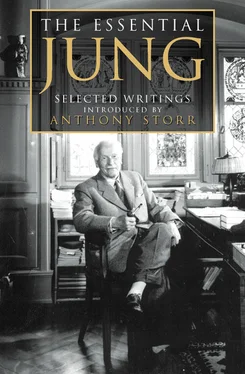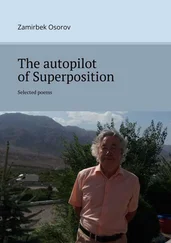1 ...8 9 10 12 13 14 ...28 This, so far as I can see, is the essence of Freud’s theory of neurosis. But it overlooks the following important question: What is the cause of this fixation of libido to the old infantile fantasies and habits? We have to remember that almost everyone has at some time had infantile fantasies and habits exactly corresponding to those of a neurotic, yet he does not become fixated to them; consequently, he does not become neurotic later on. The aetiological secret of the neurosis, therefore, does not he in the mere existence of infantile fantasies but in the so-called fixation. The numerous statements of neurotics affirming the existence of infantile sexual fantasies are worthless in so far as they attribute an aetiological significance to them, for the same fantasies can be found in normal individuals as well, a fact which I have often proved. It is only the fixation which seems to be characteristic.
It is therefore necessary to demand proof of the reality of this infantile fixation. Freud, an absolutely sincere and painstaking empiricist, would never have evolved this hypothesis had he not had sufficient grounds for it. These grounds are furnished by the results of psychoanalytic investigations of the unconscious. Psychoanalysis reveals the unconscious presence of numerous fantasies which have their roots in the infantile past and are grouped round the so-called “nuclear complex,” which in men may be designated as the Oedipus complex, in women as the Electra complex. These terms convey their own meaning exactly. The whole tragic fate of Oedipus and Electra was acted out within the narrow confines of the family, just as a child’s fate lies wholly within the family boundaries. Hence the Oedipus complex, like the Electra complex, is very characteristic of an infantile conflict. The existence of these conflicts in infancy has been proved by means of psychoanalytic research. It is in the realm of this complex that the fixation is supposed to have taken place. The extremely potent and effective existence of the nuclear complex in the unconscious of neurotics led Freud to the hypothesis that the neurotic has a peculiar fixation or attachment to it. Not the mere existence of this complex – for everybody has it in the unconscious – but the very strong attachment to it is what is typical of the neurotic. He is far more influenced by this complex than the normal person; many examples in confirmation of this can be found in every one of the recent psychoanalytic histories of neurotic cases.
We must admit that this view is a very plausible one, because the hypothesis of fixation is based on the well-known fact that certain periods of human life, and particularly infancy, do sometimes leave determining traces behind them which are permanent. The only question is whether this is a sufficient explanation or not. If we examine persons who have been neurotic from infancy it seems to be confirmed, for we see the nuclear complex as a permanent and powerful agent throughout life. But if we take cases which never show any noticeable trace of neurosis except at the particular time when they break down, and there are many such, this explanation becomes doubtful. If there is such a thing as fixation, it is not permissible to erect upon it a new hypothesis, claiming that at times during certain periods of life the fixation becomes loosened and ineffective, while at others it suddenly becomes strengthened. In these cases we find that the nuclear complex is as active and potent as in those which apparently support the theory of fixation. Here a critical attitude is justifiable, especially when we consider the oft-repeated observation that the moment of the outbreak of neurosis is not just a matter of chance; as a rule it is most critical. It is usually the moment when a new psychological adjustment, that is, a new adaptation, is demanded. Such moments facilitate the outbreak of a neurosis, as every experienced neurologist knows.
This fact seems to me extremely significant. If the fixation were indeed real we should expect to find its influence constant: in other words, a neurosis lasting throughout life. This is obviously not the case. The psychological determination of a neurosis is only partly due to an early infantile predisposition; it must be due to some cause in the present as well. And if we carefully examine the kind of infantile fantasies and occurrences to which the neurotic is attached, we shall be obliged to agree that there is nothing in them that is specifically neurotic. Normal individuals have pretty much the same inner and outer experiences, and may be attached to them to an astonishing degree without developing a neurosis. Primitive people, especially, are very much bound to their infantility. It now begins to look as if this so-called fixation were a normal phenomenon, and that the importance of infancy for the later mental attitude is natural and prevails everywhere. The fact that the neurotic seems to be markedly influenced by his infantile conflicts shows that it is less a matter of fixation than of the peculiar use which he makes of his infantile past. It looks as if he exaggerated its importance and attributed to it a wholly artificial value. Adler, a pupil of Freud’s, expresses a very similar view.
It would be unjust to say that Freud limited himself to the hypothesis of fixation; he was also aware of the problem I have just discussed. He called this phenomenon of reactivation or secondary exaggeration of infantile reminiscences “regression.” But in Freud’s view it appears as if the incestuous desires of the Oedipus complex were the real cause of the regression to infantile fantasies. If this were the case, we should have to postulate an unexpected intensity of the primary incestuous tendencies. This view led Freud to his recent comparison between what he calls the psychological “incest barrier” in children and the “incest taboo” in primitive man. He supposes that a desire for real incest led primitive man to frame laws against it; while to me it looks as if the incest taboo were only one among numerous taboos of all kinds, and were due to the typical superstitious fear of primitive mana fear existing independently of incest and its prohibition. I am able to attribute as little strength to incestuous desires in childhood as in primitive humanity. I do not even seek the reason for regression in primary incestuous or any other sexual desires. I must admit that a purely sexual aetiology of neurosis seems to me much too narrow. I base this criticism not on any prejudice against sexuality but on an intimate acquaintance with the whole problem.
I therefore suggest that psychoanalytic theory should be freed from the purely sexual standpoint. In place of it I should like to introduce an energic viewpoint into the psychology of neurosis.
All psychological phenomena can be considered as manifestations of energy, in the same way that all physical phenomena have been understood as energic manifestations ever since Robert Mayer discovered the law of the conservation of energy. Subjectively and psychologically, this energy is conceived as desire. I call it libido, using the word in its original sense, which is by no means only sexual. Sallust uses it exactly as we do here when he says: “They took more pleasure [libidinem] in handsome arms and war horses than in harlots and revelry.”
From a broader standpoint libido can be understood as vital energy in general, or as Bergson’s élan vital. The first manifestation of this energy in the infant is the nutritive instinct. From this stage the libido slowly develops through numerous variants of the act of sucking into the sexual function. Hence I do not consider the act of sucking a sexual act. The pleasure in sucking can certainly not be considered as sexual pleasure, but as pleasure in nutrition, for it is nowhere proved that pleasure is sexual in itself. This process of development is continued into adult life and is accompanied by constantly increasing adaptation to the external world. Whenever the libido, in the process of adaptation, meets an obstacle, an accumulation takes place which normally gives rise to an increased effort to overcome the obstacle. But if the obstacle seems to be insurmountable, and the individual abandons the task of overcoming it, the stored-up libido makes a regression. Instead of being employed for an increased effort, the libido gives up its present task and reverts to an earlier and more primitive mode of adaptation.
Читать дальше












